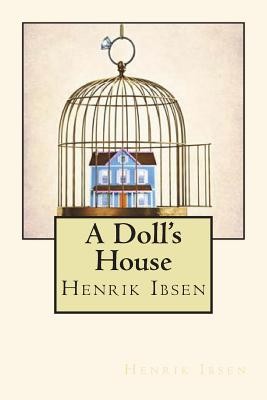
- Išsiųsime per 12–18 d.d.
- Autorius: Henrik Ibsen
- Leidėjas: CreateSpace Independent Publishing Platform
- Metai: 2018
- Puslapiai: 82
- ISBN-10: 1720395985
- ISBN-13: 9781720395980
- Formatas: 15.2 x 22.9 x 0.4 cm, minkšti viršeliai
- Kalba: Anglų
- Extra -15 % nuolaida šiai knygai su kodu: ENG15
Atsiliepimai
Aprašymas
A Doll's House is a three act play in prose by Henrik Ibsen. It premiered at the Royal Theatre in Copenhagen, Denmark, on 21 December 1879, having been published earlier that month. The play is significant for its critical attitude toward 19th century marriage norms. It aroused great controversy at the time, as it concludes with the protagonist, Nora, leaving her husband and children because she wants to discover herself. Ibsen was inspired by the belief that "a woman cannot be herself in modern society," since it is "an exclusively male society, with laws made by men and with prosecutors and judges who assess feminine conduct from a masculine standpoint."
EXTRA 15 % nuolaida su kodu: ENG15
Akcija baigiasi už 6d.04:16:34
Nuolaidos kodas galioja perkant nuo 5 €. Nuolaidos nesumuojamos.

- Autorius: Henrik Ibsen
- Leidėjas: CreateSpace Independent Publishing Platform
- Metai: 2018
- Puslapiai: 82
- ISBN-10: 1720395985
- ISBN-13: 9781720395980
- Formatas: 15.2 x 22.9 x 0.4 cm, minkšti viršeliai
- Kalba: Anglų
A Doll's House is a three act play in prose by Henrik Ibsen. It premiered at the Royal Theatre in Copenhagen, Denmark, on 21 December 1879, having been published earlier that month. The play is significant for its critical attitude toward 19th century marriage norms. It aroused great controversy at the time, as it concludes with the protagonist, Nora, leaving her husband and children because she wants to discover herself. Ibsen was inspired by the belief that "a woman cannot be herself in modern society," since it is "an exclusively male society, with laws made by men and with prosecutors and judges who assess feminine conduct from a masculine standpoint."




Atsiliepimai